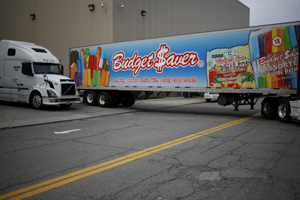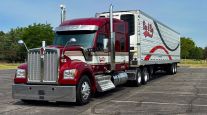Managing Editor, Features and Multimedia
Refrigerated Carriers to Face Added Complexity Under Food Safety Rule, McLeod Says

SAN ANTONIO — Food transportation will become increasingly complex under the Food Safety Modernization Act, making it more important than ever for refrigerated carriers to closely track their freight and tightly control their operations, said Tom McLeod, CEO of McLeod Software.
To comply with the regulations, food shippers are expected to develop disparate sets of requirements for their carriers, which may vary a little or a lot from one shipper to the next, he said.
“To me, that makes the electronic log mandate look like a piece of cake,” McLeod told a group of fleet customers here Sept. 19 during his company’s annual user conference.
For most operations, the compliance date for FSMA’s rule on the sanitary transportation of human and animal food will be April 6.
Different shippers may establish different requirements for driver training, equipment type, pre-cooling and the frequency of temperature readings, all of which could differ based on the commodity, McLeod said.
Documentation will be crucial under FSMA. Shippers won’t entrust their freight to carriers that can’t demonstrate compliance with their requirements, McLeod said. But on the other hand, that could create opportunities for fleets that are equipped to meet those needs.
“You’ll need to get good at doing this, and if you can get good at it before your competitors, it’s a real advantage in the marketplace,” he said.
He also predicted that the requirements for carriers will continue to increase over the next two or three years as shippers compare notes and talk to each other about best practices.
To help refrigerated carriers meet the FSMA challenge, McLeod is looking to add several features to its software, including more temperature-control information for new order entry. The company also plans to enhance visibility by displaying the load requirements and current temperature readings in its planning and dispatch application.
“We’ll be rapidly gathering information and moving ahead with development as soon as we can get a clear picture of what needs to be rolled out,” McLeod said.
Suppliers also are looking at ways to help customers deal with the coming requirements.
Gayatri Abbott, telematics product manager for Thermo King North America, said many of the same strategies designed to conserve reefer fuel, such as ensuring proper air flow in the trailer, also apply to food safety.
Thermo King also offers its own TracKing telematics system that enables customers to remotely monitor temperature-controlled loads.
“The less you see your asset, the more you want to know, which means you need some monitoring system, whether it’s for fuel, for utilization, for uptime or traceability,” Abbott said.



